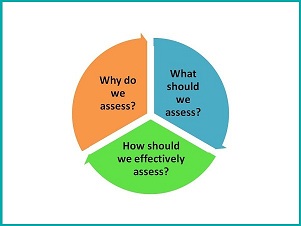Key criteria on which effectiveness of any lesson is measured
As the industry is becoming structured and organised like never before, the stress on quality has also increased like never before. Teaching is no longer a profession which is dependent on the teacher’s reputation or subject knowledge alone, in fact, it’s becoming highly quantifiable in terms of quality. Most of the schools and organisations have well-defined criteria on which effectiveness of any lesson delivered can be evaluated. Let’s have a quick glimpse of a few important criteria.

The pace of the lesson:
This criterion is all about whether the learning took place in accordance with learner’s learning ability or not? Whether the lesson delivered met the learning needs of the learner/s or not. This evaluation parameter ensures that the pace of the learning was in accordance with learner’s need and not with the teacher’s planning only. Different situations can demand different pace of the lesson.
Assessment for the learning:
This criterion entails for an ongoing assessment of learning taking place and a teacher must demonstrate the ability to adapt accordingly. It ensures that learner’s understanding is assessed at every stage as the learning progress during the session. For example, a teacher prepares a lesson plan keeping learner’s strong performance on several previous topics however the learner struggles to understand the basics of the currently introduced topic. In such cases the teacher is expected to adapt his teaching mid-lesson and first plug all the learning gaps and cement the basics then only he/she should move further else all efforts will be futile only.
Clarity of instructions and explanations given:
Ability to provide clear and concise instruction with appropriate thinking time is one of the most important deciding factors for the success of any teacher. Equally critical is the ability to break down the explanations to its simplest form so that all the learners can easily grasp the knowledge.
The effectiveness of questions asked:
Whether a teacher is able to probe the depth of learning through a wide range of questions or not, is another key parameter on which effectiveness of teaching is evaluated. Any good teacher is expected to ask questions ranging from basic fact recall to more depth probing why/ what if questions. Questions asked must enable the teacher to probe learning gaps and plug them.
Learner engagement:
This evaluation parameter ensures that the teacher has made sure that all the learners in his/her classroom are actively involved and engaged in the tasks and activities assigned to them. Active participation from the learners, approve teacher’s effectiveness in the class.
Active listening and acknowledgement of contributions made by the learner:
Were the comments and contributions made by the learners in a class acknowledged appropriately or not, is another key evaluation parameter. Acknowledging and appreciating learner’s effort and contributions are essential traits of a successful teacher. This plays a crucial role in fostering rapport and learner motivation as well.
Learner autonomy
What amount of autonomy does a teacher provide to his/her learner is one of the most important evaluation parameters in modern education system. Learner autonomy is rapidly becoming a non-negotiable criterion for most of the schools as they believe that its learner’s fundamental right to have opportunities to elaborate his/her understanding and raise questions when in doubt. As a knowledge facilitator, it’s the teacher who is responsible for fostering such conducive environment.

Pankaj is an Academic Manager with NCR Eduservices with more than 10 years of experience in teaching and learning. He is an academic evangelist and blogger.